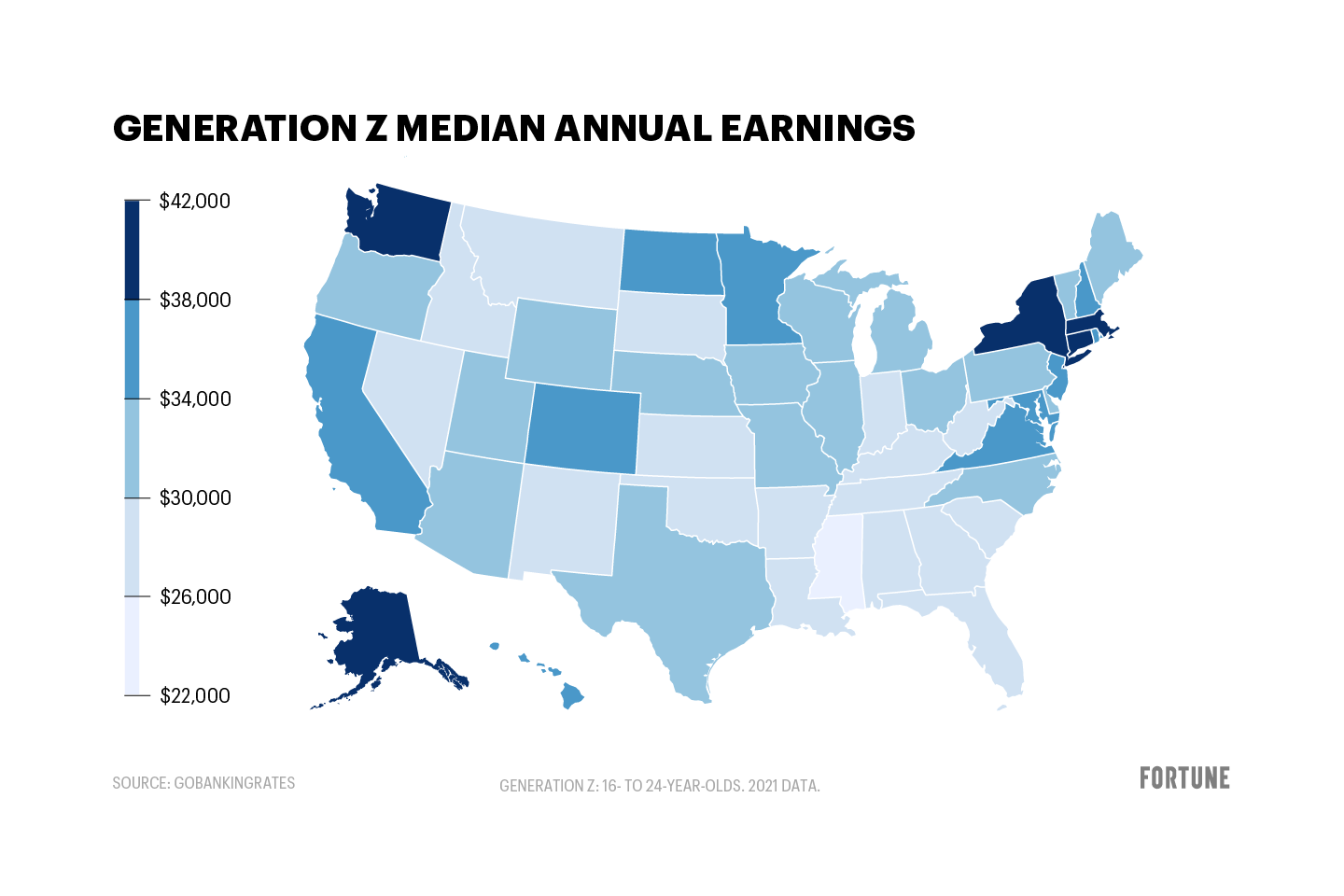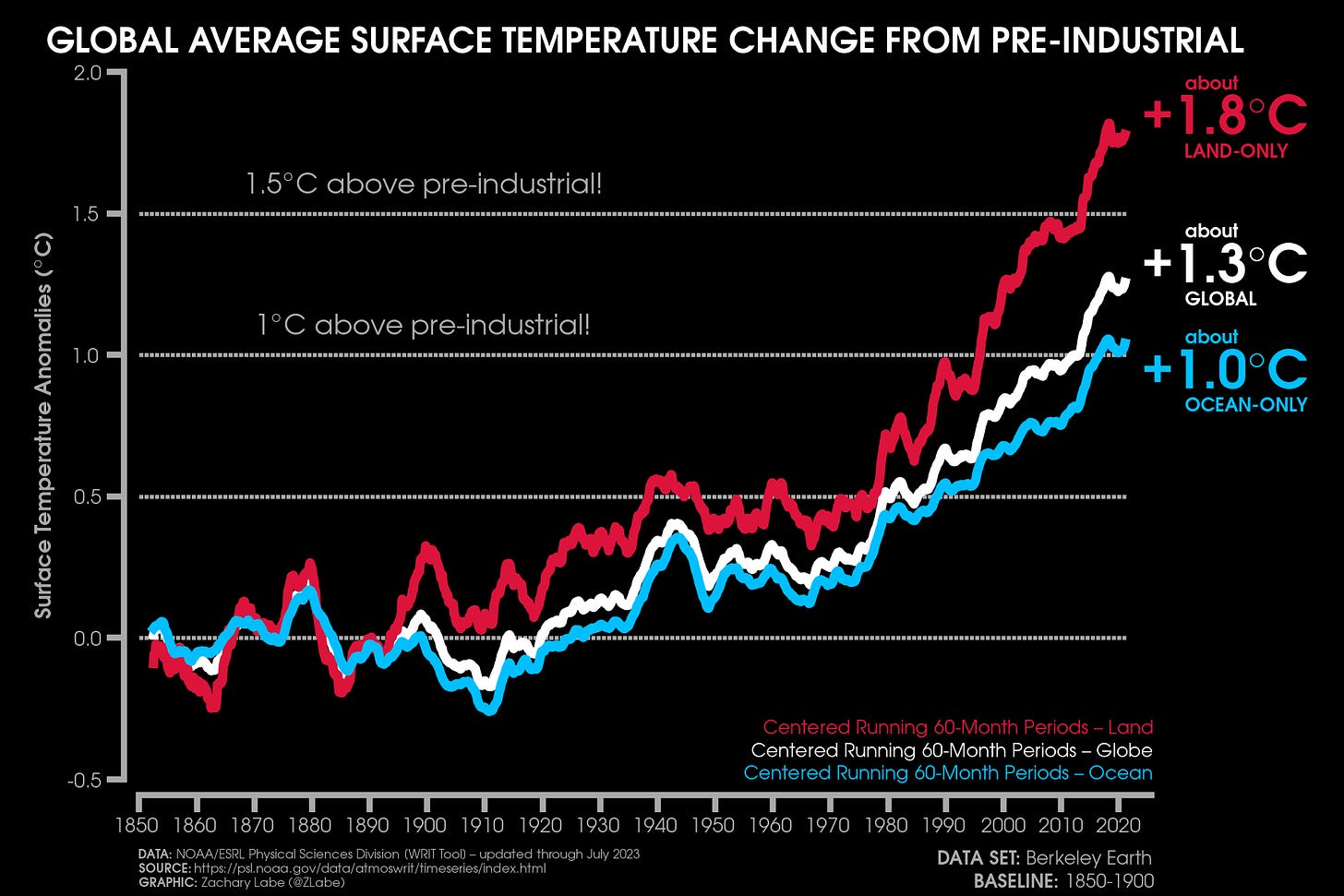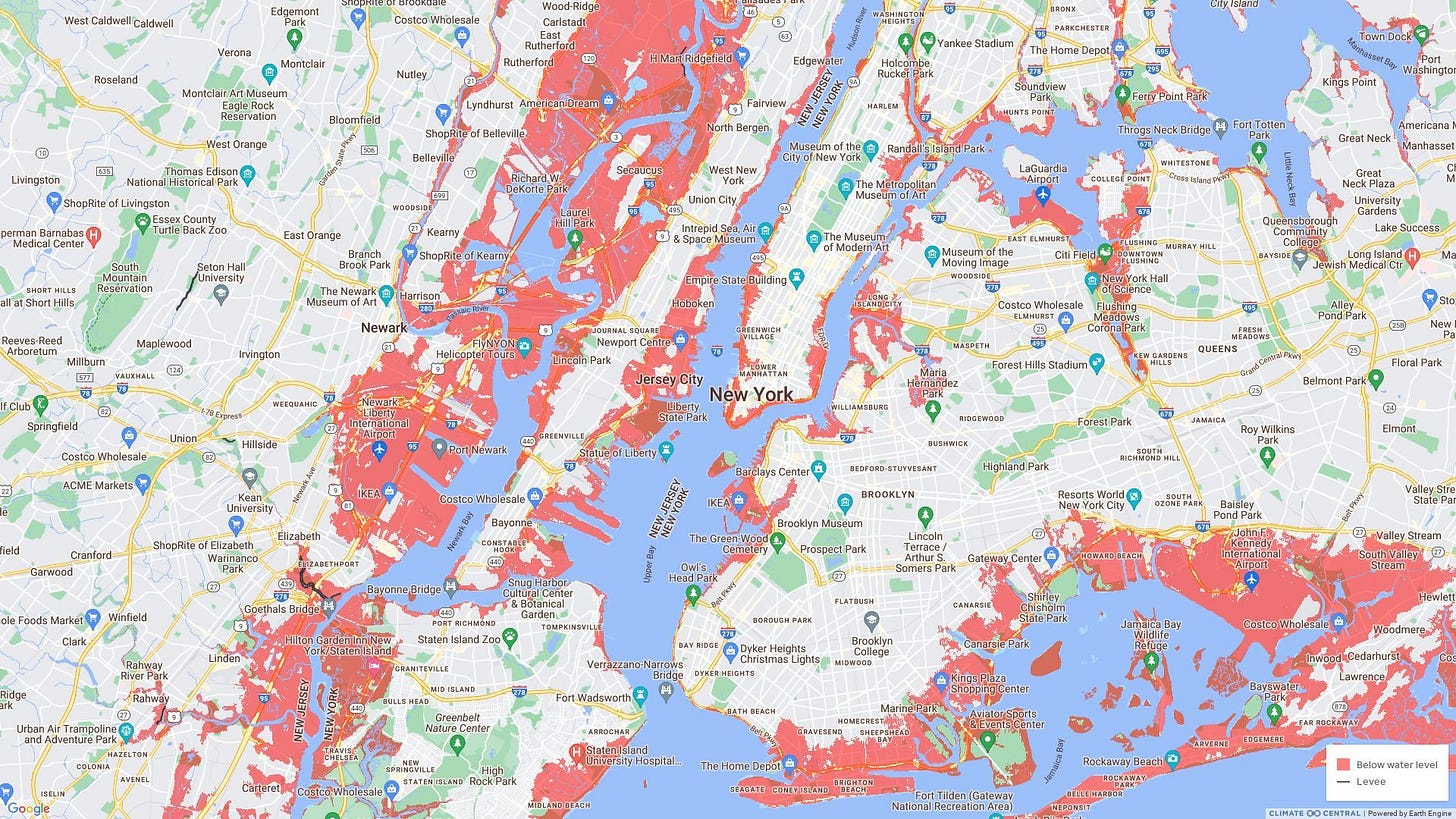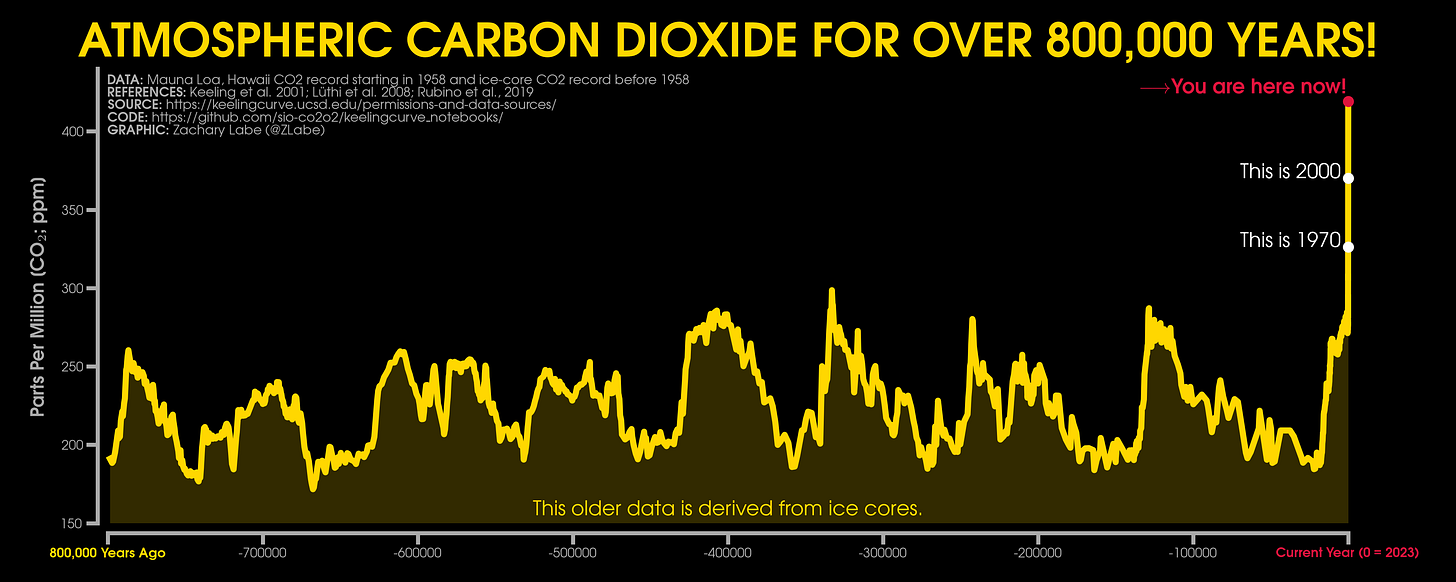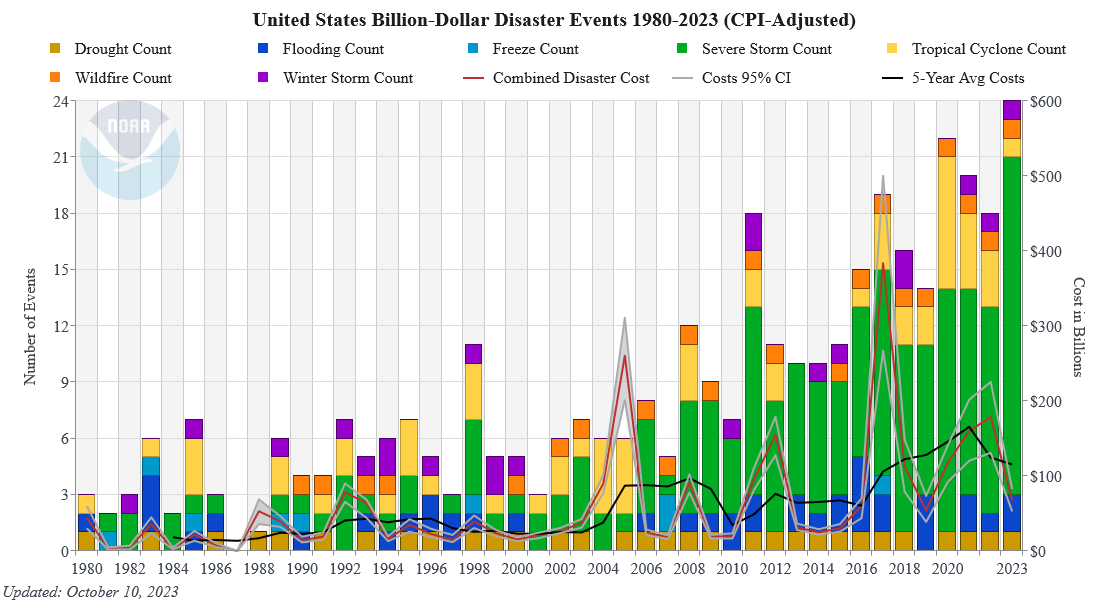Someone recently told me, "I honestly believe young people are going to cause the collapse of civilization by 2050."
Here's something you probably didn't know:
For years, a Saudi Arabian dairy company called Fondomonte leased thousands of acres of farmland in the middle of Arizona. They've been pumping 3,000 gallons of groundwater per minute to irrigate their crops. They're using it to grow alfalfa for milking cows. In case you also didn't know, alfalfa consumes nearly three times as much water as other crops. Agriculture accounts for 80 percent of all the water used from the Colorado River, and half of that goes toward the growth of alfalfa, with large amounts exported to other countries.
The rest of it goes to feed our livestock.
The Colorado River itself could dry up in a few years. A megadrought combined with heat waves has already cost the river 10 trillion gallons of water over the last two decades. The Mississippi River has also declined to the point that saltwater is now intruding into New Orleans's drinking supply.
Meanwhile, we're letting other countries use our dwindling water resources to feed their dairy cows. The state attorney general only found out about it because they violated their water use contracts. They were pumping way more than they were supposed to, in the middle of a megadrought.
The state finally terminated Fondomonte's leases this year.
So at least there's that.
Are you bored?
I'm sorry, we're going to talk about alfalfa for just a few more minutes. Most of our agriculture goes toward the production of corn for ethanol and crops like alfalfa and soy for livestock feed. Americans gotta have their cheeseburgers and chicken sandwiches. For what it's worth, it takes 25 calories to produce 1 calorie of beef. It takes 9 calories to make 1 calorie of chicken.
I'm not sure who needs to hear this, but it's a bad idea to pump thousands of gallons of groundwater out of a desert during a megadrought. It's a bad idea to base your entire food production system around meat when you get a return investment of -9 to 1, at best.
Maybe you've been to one of those nice grocery stories lately. You know, the ones that have Starbucks and sushi bars. You can swing by the deli and buy an entire rotisserie chicken, practically any time.
Here's what happens to the ones you don't buy. Some grocery stories throw out entire trash bags of rotisserie chickens every day.
Basically, hundreds of thousands of chickens are slaughtered and roasted every year so they can be stuck under a lamp for a few hours in case someone wants them, and then they're thrown away.
That's also a bad idea.
There's a Bloomberg story that's been trending for weeks now. I finally read it. It's about Starbucks. Americans are getting fed up. No, they're not getting fed up with waste or pollution. They're tired of having to wait so long for their drinks. It's unbearable. How long do they have to wait?
Five whole minutes.
OMG.
Starbucks considers it an utter crisis. They've essentially declared a state of emergency over the issue. They're now overhauling their coffeeshops to speed things up. They're rolling out something called the Siren System. It's basically a sleek dispenser unit that moves all of their eleventy million ingredients into a convenient location, so baristas don't have to bend and twist all over the place to make a unicorn diamond frappuccino.
Also:
Some upgrades are being introduced sooner, such as a portable cold foamer that’s in all 9,500 company-owned US stores. In the past, baristas had to make the frothy milk topping in a heavily used countertop blender, slowing prep and causing them to bump into each other as they sped from the hot-drink station to the cold bar.
Starbucks is also adding what they call a "reverse French press machine," which can grind beans and brew coffee in 30 seconds. They've predicted that even if they serve just five or six extra customers a day, that will generate more than $900 million in additional revenue.
So you see, a giant coffee chain can mobilize at lightning speed to solve a problem they consider important, like churning out drinks for impatient Americans. In case you're wondering, the average Starbucks customer isn't a 17-year-old girl with nothing better to do than down pumpkin spice lattes.
The average Starbucks customer is 42.
They made $90K a year.
A study by Yale found that the wealthiest 10 percent of Americans are responsible for 40 percent of our emissions. Globally, the elite have driven the vast majority of our global warming problem. In fact, the wealthiest 1 percent are responsible for 15 percent of our carbon emissions, all by themselves.
Here's an expert quoted in The Washington Post:
“It just seems morally and politically problematic to have one group of people reaping so much benefit from emissions while the poorer groups in society are asked to disproportionately deal with the harms of those emissions,” said Jared Starr, a sustainability scientist at the University of Massachusetts at Amherst.
Ya think?
The average Gen Z worker barely makes $30,000 a year.
Take a look:
There's a bit of a perception problem here.
For going on three decades, young people have been blamed for almost everything, including their own poverty. Who among us hasn't been told we'd be rich if we stopped spending our money at Starbucks? Even now, the media blames our phones for our mental health crisis. But who made those phones? Who sold them to young people? Who founded Starbucks?
Young people aren't driving the collapse of civilization.
Neither are "old" people.
Just in September, the planet shattered global heat records and breached the 1.5C threshold by a wide margin. A climate scientist at Princeton named Zack Labe made some nice graphs you might like.
Why is 1.5C such a big deal?
Well, climate scientists have spent the last decade or two telling us that if we cross that line, global warming becomes locked in. We lose the coral reefs. We lose glaciers. We lose large chunks of Antarctica. Sea levels rise anywhere from a few meters to ten or twenty meters. Severe droughts and heat waves become regular. Severe weather becomes regular.
Crop failures become regular.
People starve.
It can be hard to visualize something like sea levels rising. To help with that, Climate Central released a map where you can actually see what happens to different cities in different scenarios. Here's what happens to New York if sea levels rise by 3 meters:
Those red parts are underwater.
As we speak, the most affluent Americans are busy telling the rest of us that climate doomers are overreacting. They tell us we have plenty of time, that our emissions are about to peak, even though they're reaching new highs. Even as climate fires burned a shocking amount of forest, this last year saw the return of overtourism. Apparently, people with money are eager to see the world before it all gets toasted and washed away.
It might feel like climate change is taking forever, but it's actually happening with relentless speed. Look at all the carbon the wealthiest Americans and their European friends have spewed into the atmosphere. There hasn't been this much poison up there for nearly a million years.
Here's another chart by Zack over at Princeton.
Someone recently told me that despite all of these records...
"Nothing happened."
You hear these arguments a lot, especially online. You hear these arguments a lot from your friends, too. They shrug and tell you to calm down. Your therapist tells you to stop reading so much.
I'm sure the National Centers for Environmental Information would like a word with these people. This past year saw more 1-billion dollar disasters than any in history, by a lot. Here's another chart:
A giant flood killed 20,000 in Libya. Greece lost a quarter of its farmland. A freak storm destroyed a quarter of a pharmaceutical company's supply of injectable drugs. Roughly 5 percent of Canada's forest burned.
Does that sound like nothing?
We're a few years away from losing everything, and yet none of this information winds up on the front page of any major newspaper. Nobody wants to talk about it, unless they want to argue we still have time.
I think I finally know what they mean.
They don't mean we still have time to fix things or to make life easier for the rest of the humans on this planet. They mean they still have time. They still have time to go on their vacations. They still have time to hang out at Starbucks. They still have time to shop. They still have time for more brunches and dinner parties. They still have time for more concerts. They still have time for more wars. Even our secretary of treasury tells us we can absolutely afford it.
That's what they mean.
Affluent Americans scroll right past all the doom. They don't seem to care. They want to know why it takes five minutes to make their coffee.
There's a lot of reasons why civilization will collapse.
That's #1.
Check out more recent stories below. If you appreciate my work, consider subscribing or buying me a coffee. I've also started a climate change list here, with links to important stories. Thank you to all the readers who support this site. It makes a big difference.




